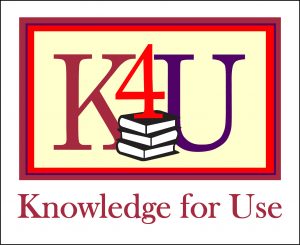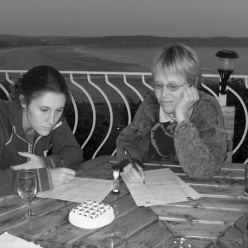The Successes and Failures of Science Through the Lens of Intellectual Humility: Perspectives from the History and Philosophy of Science – Funded by John Templeton Foundation
Principal Investigators: Nancy Cartwright and Robin Hendry
Scientific endeavors fail or succeed for many reasons. We hypothesize that Intellectual Humility (IH), or its lack, plays a significant role, not just as a virtue of individual scientists but as embodied in the norms, practices and institutions that constitute science. We will look at successes and failures in science through the lens of IH in order to chart what constitutes IH in scientific institutions and how IH affects scientific success.
This project has four aims: 1) opening up research on IH in science, where little attention is directed; 2) focusing on IH in the institutions that affect how science is conducted and what it achieves; 3) studying how IH impacts effectiveness and progress in science and its ability to serve society; 4) exploring how to make science more successful and better able to serve society.
To achieve our aims we will look at successes and failures in different domains of pure and applied science: physics, chemistry, and the socio-economic sciences. We will proceed iteratively, formulating concepts and theory from case studies and feeding those back to inform the studies.
Read more

Knowledge for Use [K4U] – 2015-2021
Making the Most of Social Science to Build Better Policies
Principal Investigator: Nancy Cartwright
This innovative, interdisciplinary and multi-institutional ERC funded research project that weaves together six case studies and two research streams. The case studies and the research streams work collaboratively to develop evidence and theory to help fortify policies.
Read more
Centre of Excellence for Development Impact and Learning (CEDIL)
Prof. Cartwright is a member of the intellectual leadership team for the Centre of Excellence for Development Impact and Learning (CEDIL) at the Department for International Development (DFID).
The Center for Ethics & Education, Research Grant – Funded April 2016
Meeting our Standards for Educational Justice: Making the Most of the Evidence
Principal Investigator: Nancy Cartwright
Recent work on educational justice observes that the U.S. has shifted from conceiving equal educational opportunities as equal resources, or inputs, for all students to calling for adequacy standards, a threshold level of outcomes that the state must ensure all students reach. Though many view Common Core as an improved set of outcomes to aim for, they will only lead to greater educational justice if those outcomes are actually achieved. Unfortunately, many schools nation-wide consistently fail to meet standards, including Common Core. Educational justice requires more than a new set of standards. It requires support for educators so they are able to assist students in meeting them. To this end, there has been a significant push to incorporate scientific evidence into deliberation about educational practices. This should lead to improvements and a more just distribution of outcomes. Unfortunately, evidence-based policy in education has not resulted in the improvements hoped for. We aim to provide tools that educators can use to make the most of evidence about what works in education. Evidence from RCTs and other studies about what has worked elsewhere is only a starting point for estimating whether a policy/practice will work here, for this class. Our goal is to investigate kinds of evidence that may help in making reliable predictions about what will work in particular local contexts. We aim for a catalog of evidence types that is both well-grounded and readily intelligible to educators deliberating about what to do in their setting.
